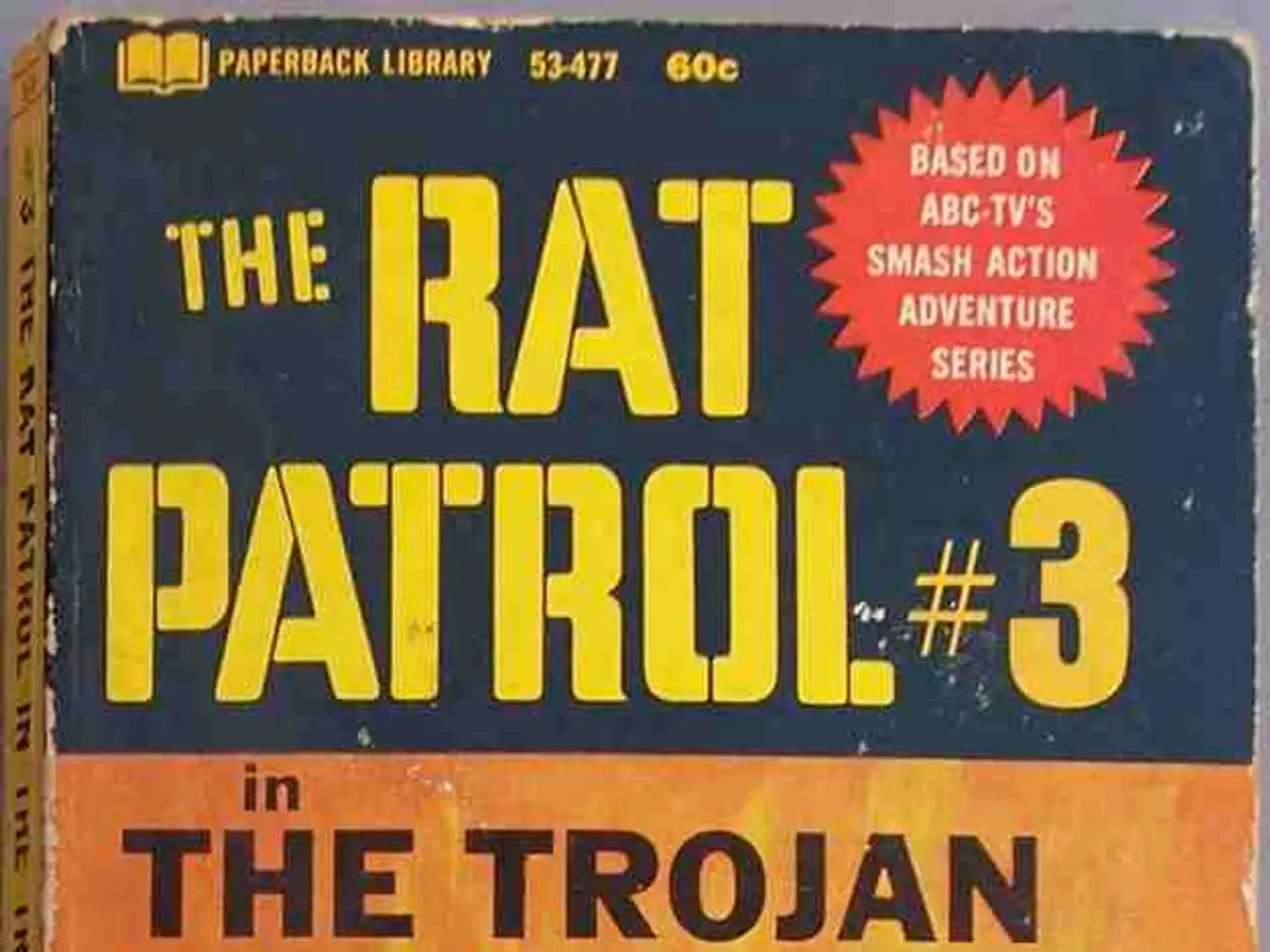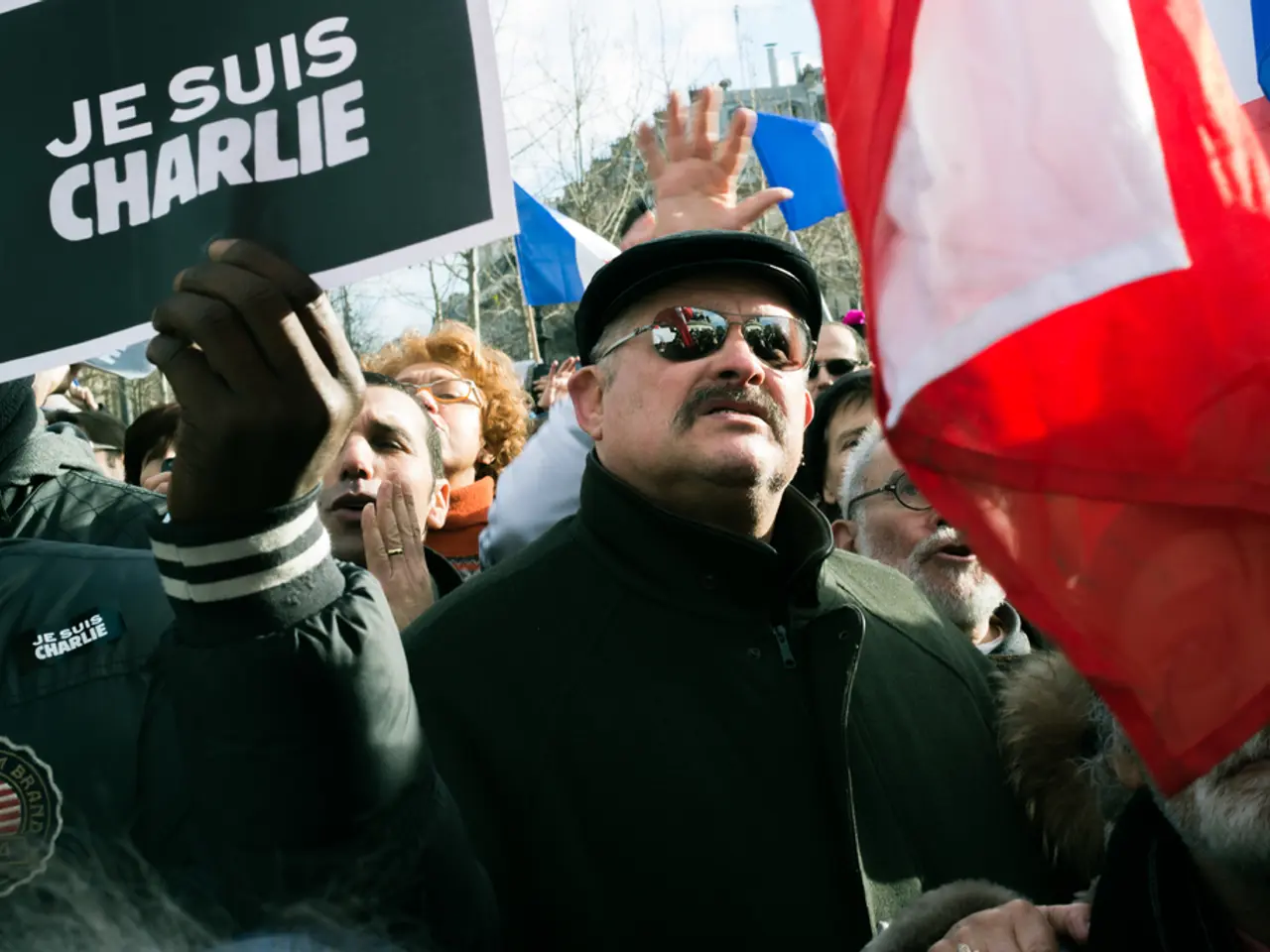Israel intends to seize control of Gaza, according to Netanyahu, with the ultimate goal of eradicating Hamas.
In recent developments, the Israeli government's plan to take full military control of the Gaza Strip has raised concerns both domestically and internationally. Here's a breakdown of the key points surrounding this controversial move.
Two more Palestinians were killed on roads leading to sites run by the Israeli-backed Gaza Humanitarian Foundation, adding to the ongoing violence in the region. Doctors Without Borders treated 1,380 people injured near these sites between June 7 and July 20, with 147 of them suffering gunshot wounds. The organisation published a report denouncing the Gaza Humanitarian Foundation's distribution system, referring to it as "orchestrated killing." The Gaza Humanitarian Foundation denies these accusations.
The Gaza Health Ministry reports over 61,000 Palestinians have been killed during Israel's military offensive, but the ministry does not specify the number of fighters or civilians. The United Nations and independent experts view the Gaza Health Ministry's figures as the most reliable estimate of casualties.
The potential consequences of Israel's plan to take full control of Gaza and transfer its administration to friendly Arab forces include massive forced displacement, increased killings, severe suffering, widespread destruction, and possible atrocity crimes. The UN High Commissioner for Human Rights has emphasised that such a plan violates international law, undermines the two-State solution, and will exacerbate the humanitarian crisis rather than resolving it.
Internationally, the plan faces strong condemnation, especially from human rights bodies like the United Nations, which insist the takeover be halted immediately. The UN calls for unfettered humanitarian aid access to Gaza and the unconditional release of hostages by Palestinian groups, highlighting concerns about further escalation leading to severe regional instability.
In summary, the ramifications of Israel's plan include:
- Deterioration of humanitarian conditions with potential widespread civilian suffering and displacement.
- Violation of international law, drawing criticism from global legal and human rights authorities.
- Escalation of conflict, risking more deaths and destruction in Gaza.
- Increased international tensions, as such actions oppose recognised pathways to peace, notably the two-State solution framework.
- Dependence on already fragile Arab regional diplomacy, with complications arising if administration is transferred to Arab actors perceived as "friendly" to Israel, which could face rejection or resistance locally and internationally.
Thus, the plan risks not only deepening the humanitarian disaster but also triggering broader diplomatic and security crises internationally.
Nasser Hospital received the bodies of the Palestinians killed on Thursday, and families of hostages held in Gaza fear an escalation could doom their loved ones. Former top Israeli security officials have warned against the plan, saying it could lead to a quagmire with little added military benefit.
Prime Minister Benjamin Netanyahu intends to take full control of the Gaza Strip to remove Hamas and eventually transfer its administration to friendly Arab forces. The Security Cabinet is discussing a widening of its 22-month offensive in Gaza. However, Israel's military chief of staff, Lt. Gen. Eyal Zamir, warned against occupying Gaza, saying it would endanger the hostages and put further strain on the military after nearly two years of war.
[1] Source: UN High Commissioner for Human Rights, United Nations, and independent experts.
- The California government, among others, is closely monitoring the escalating political situation in the Gaza Strip, given the potential violations of international law and the risks of further war-and-conflicts.
- The General News outlets have reported that international human rights bodies, including the UN High Commissioner for Human Rights, have denounced Israel's plan to take full control of Gaza, warning of massive displacement, increased killings, and possible atrocity crimes.
- The escalating conflict in Gaza, marked by ongoing violence and humanitarian concerns, has become a major focus of political discussions, with concerns rising both domestically and internationally, especially in light of the Israeli government's plan to transfer the Gaza Strip's administration to friendly Arab forces.





